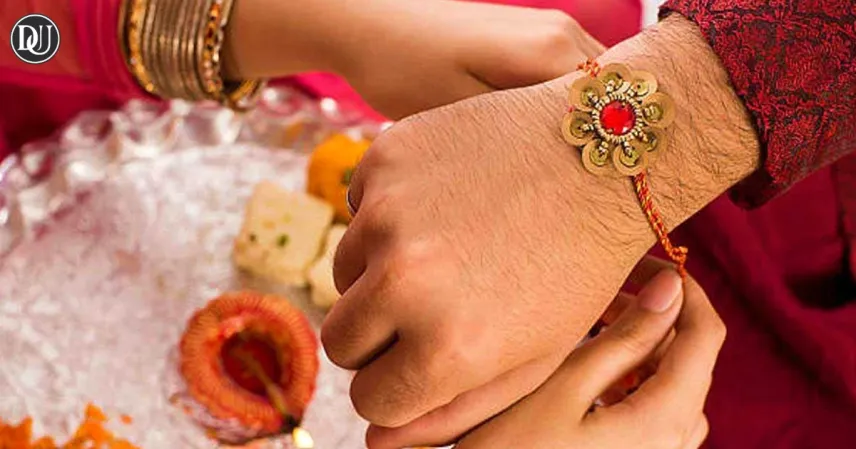You know how some traditions just feel ancient, even if you don't really know why? Raksha Bandhan, for instance, just randomly popped into my head. Always just saw it as that day brothers and sisters get together, tie a thread, get some gifts, you know? But then I started thinking about the actual history, and it’s way deeper than I ever realized.
Origins & Ancient Threads 📜
There’s this whole narrative around Raksha Bandhan tracing back centuries, possibly millennia, which is kind of mind-blowing. It’s not just a cute family thing; it’s rooted in pretty intense historical and mythological stories. The act of tying a sacred thread, or rakhi, has always symbolized protection and a bond of responsibility. It’s wild to think about it, but essentially, it was a plea for safety, a commitment to safeguard another, not just a sibling. From what I've read, the very word "Raksha Bandhan" translates to "the bond of protection." That feels like a significant detail, doesn't it? It implies something far more profound than just a present exchange.
More Than Just Siblings: The Broader Bond 🫂
People often associate Raksha Bandhan strictly with brothers and sisters, right? Well, that's definitely the most common modern interpretation, but historically, it wasn't exclusively about blood relatives. I mean, the sources point to queens tying rakhis to priests, or even to kings who weren't their actual brothers, seeking protection or an alliance. Think about it: a symbolic gesture of unity and mutual respect, cutting across family lines. That's a powerful idea. It suggests a society valuing communal bonds and reciprocal duties, not just familial ones. Could be wrong, but it feels like a really ancient form of social contract, you know?
Rituals & Symbolism: What the Rakhi Really Means ✨
The actual ritual itself – the sister tying the rakhi, the brother offering gifts, the sweets – it’s all packed with symbolism. The thread, often intricate and colorful, isn't just a piece of string. It's supposed to be a physical manifestation of a sister's love and prayers for her brother's well-being and longevity. In return, the brother pledges to protect her, come what may. It’s a pretty serious vow, when you break it down. And honestly, while the gifts are nice, the core of it is this unspoken, yet deeply understood, promise. Is that really surprising, given how old the tradition is?
Historical Echoes and Royal Protectors 👑
Looking into the origins, there are some incredible historical anecdotes. One story I heard, like, blew me away, about Rani Karnavati of Chittor sending a rakhi to Emperor Humayun. She was facing an invasion and sought his protection. He honored the rakhi, even abandoning a military campaign to go help her. That's a pretty strong testament to the significance of the bond, isn't it? Another one involves Lord Krishna and Draupadi. She tore a piece of her sari to stop Krishna’s bleeding, and he, in turn, vowed to protect her. These aren't just myths; they're foundational stories that highlight the deep, protective aspect of the rakhi bond.
Modern Day Raksha Bandhan: Evolving Traditions 🌍
It's interesting how festivals evolve, isn't it? Today, Raksha Bandhan is still hugely popular, but it's definitely adapted. You see sisters tying rakhis on their brothers' wrists globally now. The gifts are often more materialistic, like gadgets or cash, which is a bit different from the historical simple blessings. But the core sentiment, I think, remains. People are also tying rakhis to extended family members, even friends who feel like siblings, blurring those lines further. It’s becoming more inclusive, almost a celebration of any strong protective bond. That’s probably a good thing, expanding the spirit of unity beyond just biological siblings.
A Pledge, Not Just a Present 💖
Ultimately, when you strip away the commercialism, Raksha Bandhan is about a pledge. It's a commitment to support, to care, to be there for someone. It’s not just about a brother protecting a sister; it’s increasingly seen as a mutual relationship, where both protect and support each other. I've noticed friends who aren't even siblings doing this now, which is really cool. It reminds us that bonds of affection and responsibility are important, and worth celebrating. These deeper meanings, they resonate, you know? It's more than just a yearly ritual; it's a reminder of human connection.
The Deeper Cultural Current 🌊
This whole thought train just makes you realize how deeply ingrained certain values are in cultures. Raksha Bandhan isn’t just an isolated festival; it’s a reflection of ancient Indian societal values emphasizing mutual protection, duty, and familial — or chosen familial — bonds. It’s a beautiful way to reinforce those connections annually. Even if the immediate context is a brother-sister relationship, the underlying message of care and responsibility is universal. It’s one of those things that, once you dig into it, makes you appreciate the richness of cultural heritage. Anyway, I should probably try to get some sleep now, but this was a wild rabbit hole to go down at 2 AM.










